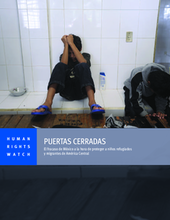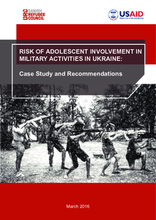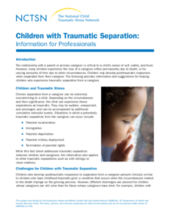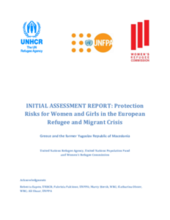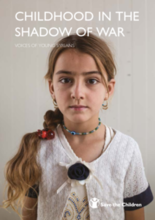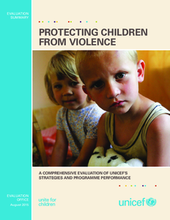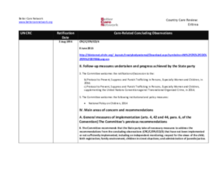Displaying 371 - 380 of 532
Human Rights Watch llevaba a cabo investigación en México y Honduras en 2015 para examinar cómo México está aplicando la ley nacional e internacional en el tratamiento de migrantes centroamericanos, particularmente los niños.
In this report, Lazarenko notes that adolescents between ages 16 to 18 who attend vocational educational institutions in conflict-affected areas are at a particularly high risk of involvement in armed forces/groups or sexual exploitation.
Mental health issues in war-affected children include depression, posttraumatic stress disorder (PTSD), and neurological problems, among others.
This guidance from the National Child Traumatic Stress Network provides information and suggestions for helping children who experience traumatic separation from a caregiver.
Concerned by the protection risks faced by women and girls, the United Nations Refugee Agency (UNHCR), the United Nations Population Fund (UNFPA) and the Women’s Refugee Commission (WRC) undertook a joint seven-day assessment mission to Greece and the former Yugoslav Republic of Macedonia in November 2015. This report describes the assessment’s findings and key recommendations for the European Union (EU), transit and destination country governments, humanitarian actors and civil society organizations (CSOs).
A mobile phone-based community surveillance system was piloted in the Democratic Republic of the Congo with the goal of identifying new cases of unaccompanied and separated children on a weekly basis.
Through the voices of children, parents and staff working in the region, this report by Save the Children presents a glimpse into the struggles faced by refugee and displaced children and families from Syria. The report is primarily based on children’s stories as told to Save the Children in urban areas in Lebanon and in camps and urban areas in the Kurdistan Region of Iraq. Drawings and other playful sessions were used with the children to help them tell stories of their everyday lives without the negative impact a deep interview might have.
The CPC Learning Network and UNHCR are collaborating to develop and test a Child Protection Index (CPI), a measure of strength of the child protection system in refugee settings, based on UNHCR’s Framework for the Protection of Children. This report details the results of the baseline study conducted from December 2014-February 2015 in Kiryandongo and Adjumani refugee settlements, Uganda.
This report on Protecting Children from Violence: A Comprehensive Evaluation of UNICEF’s Strategies and Programme Performance was prepared by independent consultants to evaluate UNICEF's work on violence against children (VAC).
This country care review includes the care related Concluding Observations adopted by the Committee on the Rights of the Child.

